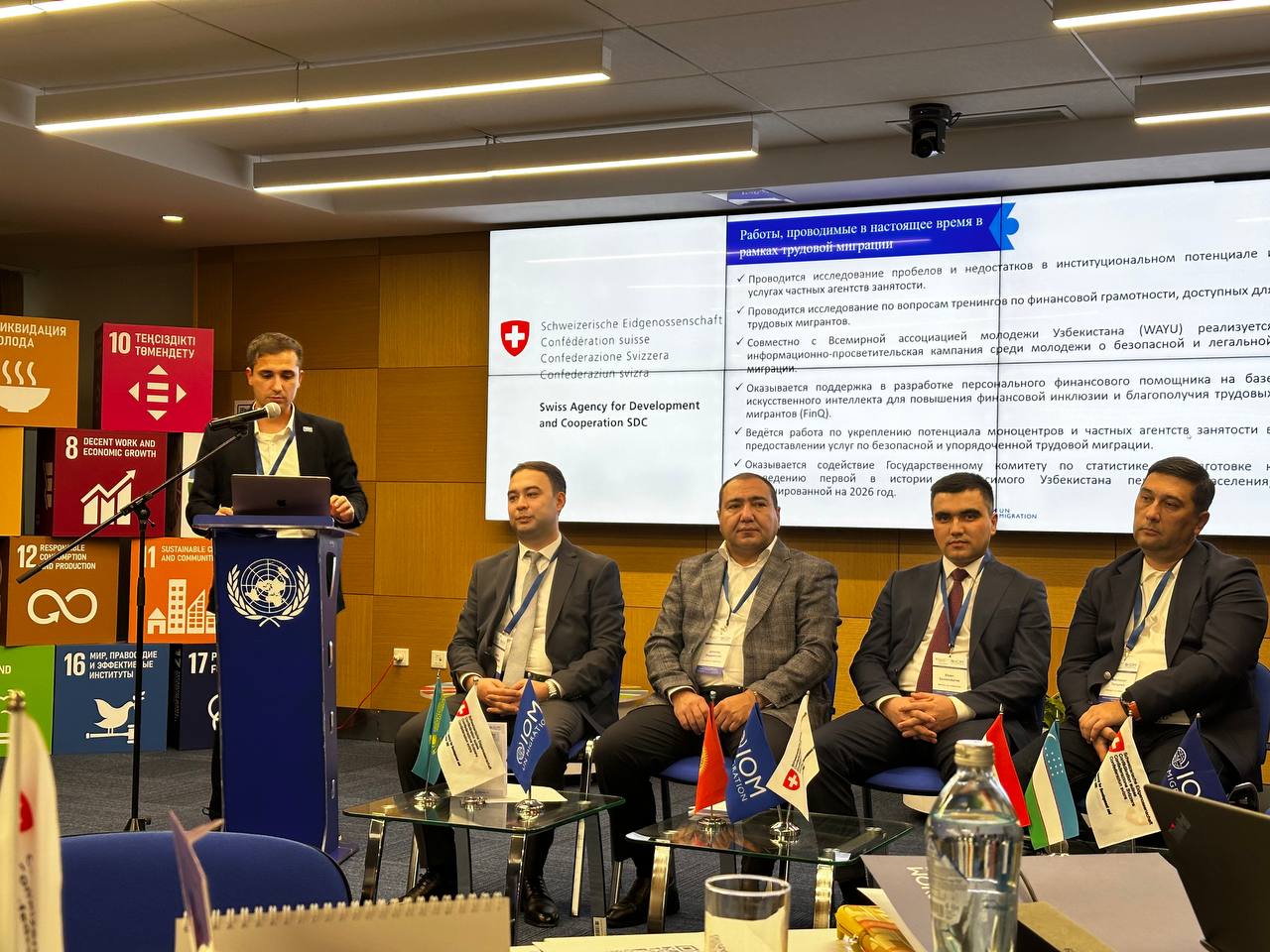Central Asia unites efforts to protect the rights of migrant workers

On 24–25 November, Almaty hosted a meeting of the Regional Coordination Mechanism (RCM) under the “Labour Migration Program – Central Asia” project, organized by the International Organization for Migration (IOM). The first phase of the Program, launched in 2022, aims to strengthen cooperation among the countries of the region in the field of labour migration.
The event brought together representatives of diplomatic missions, relevant government agencies, and the expert community from Central Asian countries, becoming an important platform for exchanging experience and discussing current issues of migration policy.
Participants reviewed the results of the “Labour Migration Program – Central Asia,” as well as successful practices of Kazakhstan, Kyrgyzstan, Tajikistan, and Uzbekistan in the field of migration governance. Special attention was given to improving migration policy through data-driven approaches, strengthening the capacity of private employment agencies, expanding digital services for migrants, and engaging youth in positive migration processes.
Eldor Samandarov, Senior Research Fellow at the Institute for Strategic and Regional Studies under the President of the Republic of Uzbekistan (ISRS), took part in the RCM meeting. He presented an expert perspective on coordinating migration policies in the region, enhancing cooperation among countries, and ensuring the protection of labour migrants’ rights.
E.Samandarov highlighted the reforms underway in Uzbekistan, including the expansion of legal support mechanisms for citizens abroad, the development of private employment agencies, comprehensive pre-departure training for migrants, and their subsequent reintegration upon return. He also emphasized the importance of promoting research activities in the field of human mobility.
Representatives of IOM and the Central Asian states highly commended Uzbekistan’s efforts to protect the rights of labour migrants. Serhan Aktoprak, Head of the IOM Mission in Kazakhstan and Regional Coordinator for Central Asia, underlined that Uzbekistan’s upcoming population census in 2026 will serve as an important source of data for deeper analysis of migration processes.
During the meeting, participants also discussed key recommendations on the interim results of the project and outlined strategic directions for preparing the second phase of the program (2026–2030). The outcomes of the event helped define further steps for implementing regional initiatives in the field of labour migration.
Overall, the RCM meeting in Almaty reaffirmed the strong commitment of Central Asian countries to further strengthening cooperation in regulating labour migration. The event served as a significant platform for sharing experience, forming harmonized approaches, and developing practical solutions to pressing migration governance challenges.
As part of the visit to Kazakhstan, the ISRS representative also held a number of expert meetings with the relevant agencies of the republic, during which the implementation progress of the Agreement between Uzbekistan and Kazakhstan on the employment and protection of the rights of migrant workers of both countries was discussed. The parties agreed to jointly develop an action plan for 2026.






